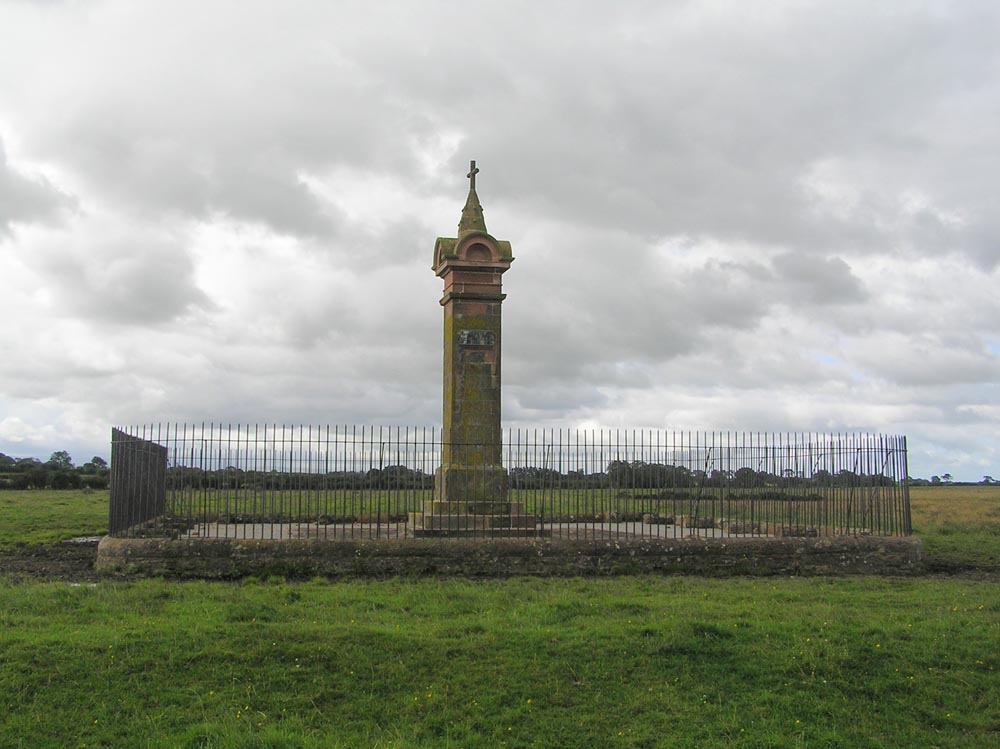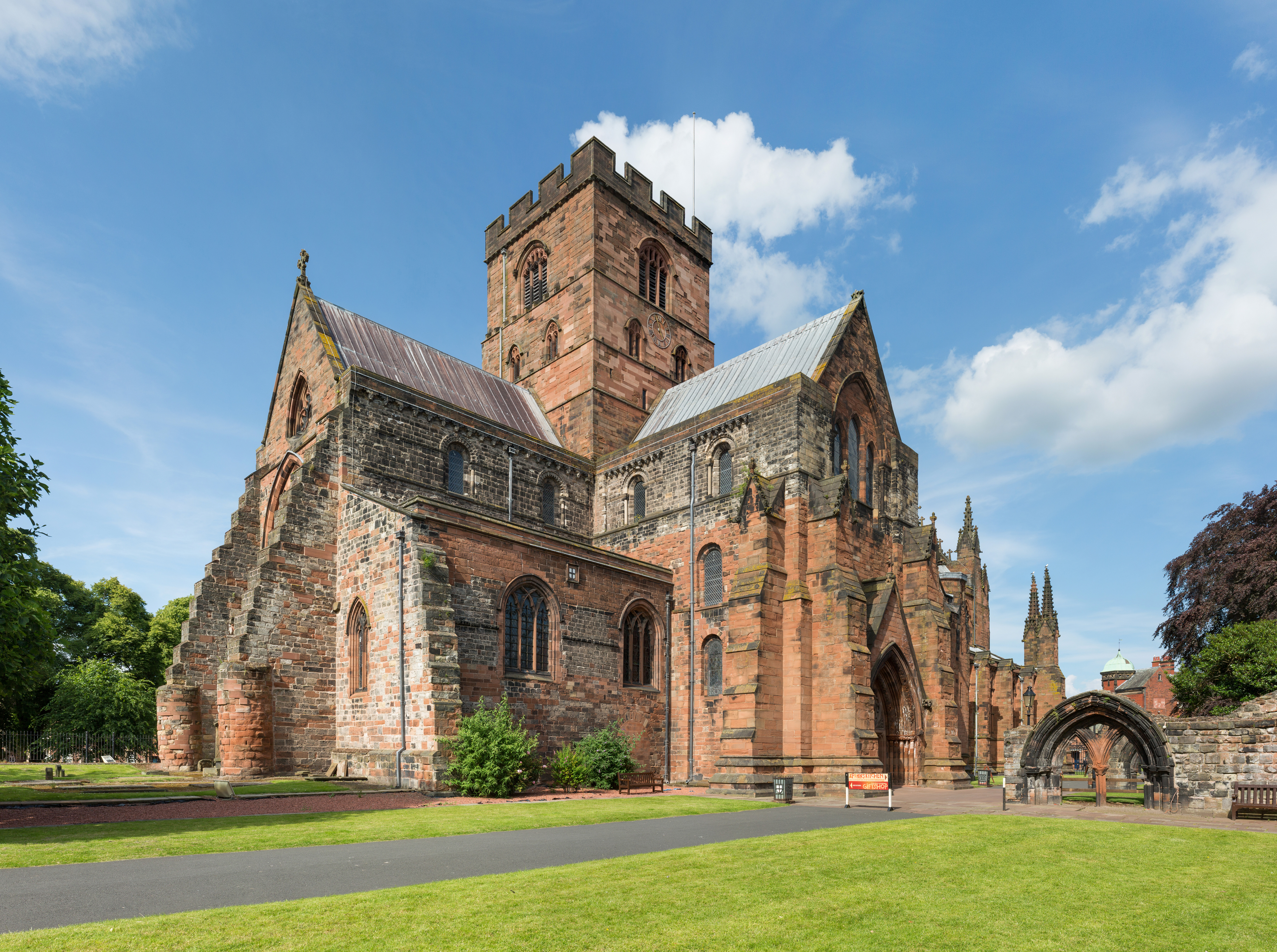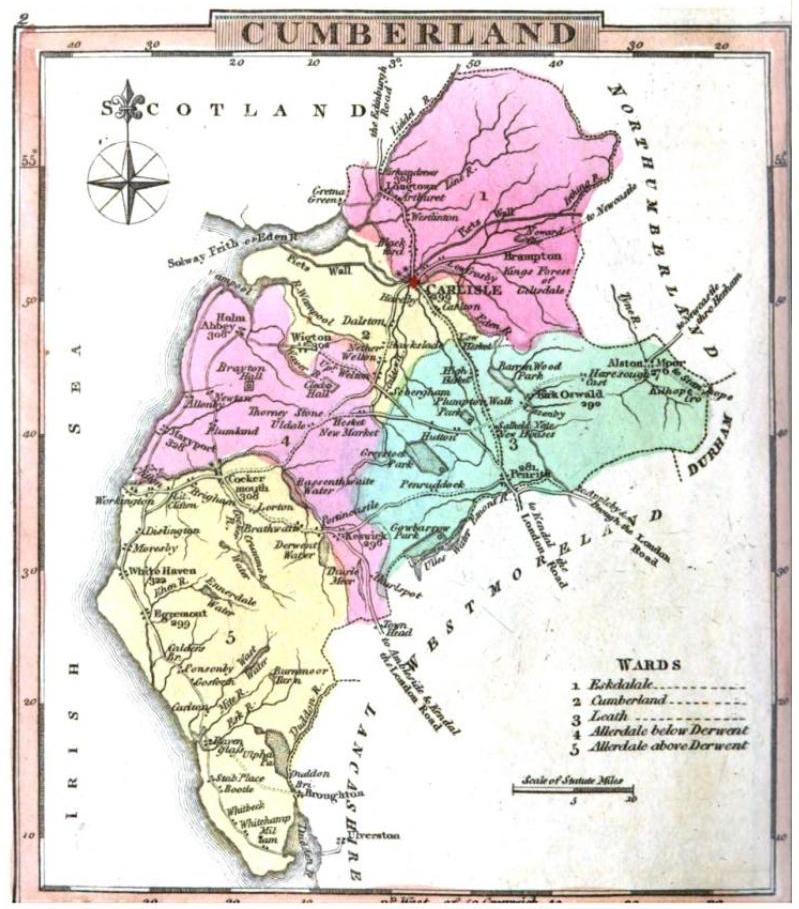|
John Stagg (poet)
John Stagg (1770–1823) was an English poet from Cumberland, where he was known as the "blind bard". He is now remembered for "The Vampyre" (1810). Life Stagg was born at Burgh-by-Sands, near Carlisle, where his father, a tailor, possessed a small property. His parents decided to educate him for the church, but while he was still young an accident deprived him of his sight and put an end to his studies. For some time he made a livelihood by keeping a library in Wigton and playing his fiddle. In his twentieth year he married. After leaving Wigton for Carlisle, he moved to Manchester, where he remained more or less till his death. He visited Cumberland, and also went further afield selling his works, and about 1809 visited Oxford. Stagg died at Workington in 1823. He was father of seven children. In Charles Howard, 11th Duke of Norfolk, and the Cumberland gentry, as well as among members of both English universities, he had found patrons. Works Stagg first published a volume of ... [...More Info...] [...Related Items...] OR: [Wikipedia] [Google] [Baidu] |
Cumberland
Cumberland ( ) is a historic county in the far North West England. It covers part of the Lake District as well as the north Pennines and Solway Firth coast. Cumberland had an administrative function from the 12th century until 1974. From 1974 until 2023, Cumberland lay within Cumbria, a larger administrative area which also covered Westmorland and parts of Yorkshire and Lancashire. In April 2023, Cumberland will be revived as an administrative entity when Cumbria County Council is abolished and replaced by two unitary authorities; one of these is to be named Cumberland and will include most of the historic county, with the exception of Penrith and the surrounding area. Cumberland is bordered by the historic counties of Northumberland to the north-east, County Durham to the east, Westmorland to the south-east, Lancashire to the south, and the Scottish counties of Dumfriesshire and Roxburghshire to the north. Early history In the Early Middle Ages, Cumbria was part of t ... [...More Info...] [...Related Items...] OR: [Wikipedia] [Google] [Baidu] |
Burgh-by-Sands
Burgh by Sands () is a village and civil parish in the City of Carlisle district of Cumbria, England, situated near the Solway Firth. The parish includes the village of Burgh by Sands along with Longburgh, Dykesfield, Boustead Hill, Moorhouse and Thurstonfield. It is notable as the site of the first recorded North African (Moorish) military unit in Roman Britain, garrisoning the frontier fort of Aballava on Hadrian's Wall in the 3rd century AD. It is also where Edward I of England died in 1307. According to the 2011 census the parish had a population of 1,176. The village is about seven miles (11 km) west of Carlisle city centre. The village has a primary school, a pub and a post office. It also has a statue of Edward I at some distance to the north. Burgh was on the Carlisle Navigation canal from 1823 to 1853, after which it was served by the Port Carlisle railway, which was built on the bed of the canal, until its closure in 1932. From 1856 to 1964, railway trains operat ... [...More Info...] [...Related Items...] OR: [Wikipedia] [Google] [Baidu] |
Carlisle, Cumbria
Carlisle ( , ; from xcb, Caer Luel) is a city that lies within the Northern English county of Cumbria, south of the Scottish border at the confluence of the rivers Eden, Caldew and Petteril. It is the administrative centre of the City of Carlisle district which, (along with Cumbria County Council) will be replaced by Cumberland Council in April 2023. The city became an established settlement during the Roman Empire to serve forts on Hadrian's Wall. During the Middle Ages, the city was an important military stronghold due to its proximity to the Kingdom of Scotland. Carlisle Castle, still relatively intact, was built in 1092 by William Rufus, served as a prison for Mary, Queen of Scots in 1568 and now houses the Duke of Lancaster's Regiment and the Border Regiment Museum. In the early 12th century, Henry I allowed a priory to be built. The priory gained cathedral status with a diocese in 1133, the city status rules at the time meant the settlement became a city. Fro ... [...More Info...] [...Related Items...] OR: [Wikipedia] [Google] [Baidu] |
Wigton
Wigton is a market town in the Allerdale borough of Cumbria, England. Historically in Cumberland, it lies just outside the Lake District in the borough of Allerdale. Wigton is at the centre of the Solway Plain, between the Caldbeck Fells and the Solway coast. It is served by Wigton railway station on the Cumbrian Coast Line, and the A596 road to Workington. The town of Silloth-on-Solway lies to the west, beyond Abbeytown. Etymology Wigton is "Wicga's tūn". "Wicga" is an Old English pre-7th-century personal name meaning "a beetle" (as in "earwig"), while "tūn" is Old English for a demarcated plot, a "homestead" or "village", so Wigton is "the hamlet belonging to Wicga". History On the River Wampool and Wiza Beck ( beck being a dialect word meaning "brook" or "stream" – from the Old Norse ''bekkr''), the market town of Wigton is an ancient settlement and evolved from a pre-medieval street plan, which can still be traced today. The Romans had a cavalry station, Maglo ... [...More Info...] [...Related Items...] OR: [Wikipedia] [Google] [Baidu] |
Manchester
Manchester () is a city in Greater Manchester, England. It had a population of 552,000 in 2021. It is bordered by the Cheshire Plain to the south, the Pennines to the north and east, and the neighbouring city of Salford to the west. The two cities and the surrounding towns form one of the United Kingdom's most populous conurbations, the Greater Manchester Built-up Area, which has a population of 2.87 million. The history of Manchester began with the civilian settlement associated with the Roman fort ('' castra'') of ''Mamucium'' or ''Mancunium'', established in about AD 79 on a sandstone bluff near the confluence of the rivers Medlock and Irwell. Historically part of Lancashire, areas of Cheshire south of the River Mersey were incorporated into Manchester in the 20th century, including Wythenshawe in 1931. Throughout the Middle Ages Manchester remained a manorial township, but began to expand "at an astonishing rate" around the turn of the 19th century. Manchest ... [...More Info...] [...Related Items...] OR: [Wikipedia] [Google] [Baidu] |
Workington
Workington is a coastal town and civil parish at the mouth of the River Derwent on the west coast in the Allerdale borough of Cumbria, England. The town was historically in Cumberland. At the 2011 census it had a population of 25,207. Location The town is south-west of Carlisle, north-east of Whitehaven, west of Cockermouth, and south-west of Maryport. History The area around Workington was long a producer of coal and steel. Between 79 and 122 CE, Roman forts, mile-forts and watchtowers were built along the Cumbrian coast,Richard L. M. Byers (1998). ''History of Workington: An Illustrated History from Earliest Times to 1865''. Richard Byers. . as defences against attacks by the Scoti of Ireland and the Caledonii, the most powerful tribe in what is now Scotland. The 16th-century ''Britannia'', written by William Camden, describes ruins of these defences. A Viking sword was discovered at Northside. This is seen to suggest there was a settlement at the river mouth. The ... [...More Info...] [...Related Items...] OR: [Wikipedia] [Google] [Baidu] |
Charles Howard, 11th Duke Of Norfolk
Charles Howard, 11th Duke of Norfolk (15 March 1746 – 16 December 1815), styled Earl of Surrey from 1777 to 1786, was a British nobleman, peer, and politician. He was the son of Charles Howard, 10th Duke of Norfolk and Catherine Brockholes. Howard was known for actively participating in the British Tory Party, Tory party as part of the support for King George III. He also spent a considerable amount of his money rebuilding and refurbishing Arundel Castle after inheriting his title and lands. Family He married, firstly, Marion Coppinger (daughter of John Coppinger), on 1 August 1767, who died a year later giving birth. He married, secondly, Frances Scudamore, Duchess of Norfolk, Frances Scudamore (1750–1820), the only child of Charles FitzRoy-Scudamore and his wife Frances Scudamore, Duchess of Beaufort, Frances, formerly Duke of Beaufort, Duchess of Beaufort, on 6 April 1771 at London, England. Frances soon became insane after her marriage and was locked away until her ... [...More Info...] [...Related Items...] OR: [Wikipedia] [Google] [Baidu] |
List Of 18th-century British Working-class Writers
This list focuses on published authors whose working-class status or background was part of their literary reputation. These were, in the main, writers without access to formal education, so they were either autodidacts or had mentors or patrons. This lack of standardized education gave rise to the notion of the "rough," "untutored," "natural" artist. There was a vogue among middle- and upper-class readers, particularly later in the eighteenth-century and throughout the Romantic era, for writers with an "interesting story of genius-in-rags," for "the Unschooled Sons" — and daughters — "of Genius."Williams, John. "Displacing Romanticism: Anna Seward, Joseph Weston and the Unschooled Sons of Genius." ''Placing and Displacing Romanticism''. Ed. Peter J. Kitson. London: Ashgate, 2001, 48-59. Writers Notes Resources *Andrews, Corey E. "'Work' Poems: Assessing the Georgic Mode of Eighteenth-Century Working-Class Poetry." ''Experiments in Genre in Eighteenth-Century Literature' ... [...More Info...] [...Related Items...] OR: [Wikipedia] [Google] [Baidu] |
1770 Births
Year 177 ( CLXXVII) was a common year starting on Tuesday (link will display the full calendar) of the Julian calendar. At the time, it was known as the Year of the Consulship of Commodus and Plautius (or, less frequently, year 930 ''Ab urbe condita''). The denomination 177 for this year has been used since the early medieval period, when the Anno Domini calendar era became the prevalent method in Europe for naming years. Events By place Roman Empire * Lucius Aurelius Commodus Caesar (age 15) and Marcus Peducaeus Plautius Quintillus become Roman Consuls. * Commodus is given the title ''Augustus'', and is made co-emperor, with the same status as his father, Marcus Aurelius. * A systematic persecution of Christians begins in Rome; the followers take refuge in the catacombs. * The churches in southern Gaul are destroyed after a crowd accuses the local Christians of practicing cannibalism. * Forty-seven Christians are martyred in Lyon (Saint Blandina and Pothinus, bishop o ... [...More Info...] [...Related Items...] OR: [Wikipedia] [Google] [Baidu] |
1823 Deaths
Eighteen or 18 may refer to: * 18 (number), the natural number following 17 and preceding 19 * one of the years 18 BC, AD 18, 1918, 2018 Film, television and entertainment * ''18'' (film), a 1993 Taiwanese experimental film based on the short story ''God's Dice'' * ''Eighteen'' (film), a 2005 Canadian dramatic feature film * 18 (British Board of Film Classification), a film rating in the United Kingdom, also used in Ireland by the Irish Film Classification Office * 18 (''Dragon Ball''), a character in the ''Dragon Ball'' franchise * "Eighteen", a 2006 episode of the animated television series ''12 oz. Mouse'' Music Albums * ''18'' (Moby album), 2002 * ''18'' (Nana Kitade album), 2005 * '' 18...'', 2009 debut album by G.E.M. Songs * "18" (5 Seconds of Summer song), from their 2014 eponymous debut album * "18" (One Direction song), from their 2014 studio album ''Four'' * "18", by Anarbor from their 2013 studio album '' Burnout'' * "I'm Eighteen", by Alice Cooper common ... [...More Info...] [...Related Items...] OR: [Wikipedia] [Google] [Baidu] |
People From Burgh By Sands
A person ( : people) is a being that has certain capacities or attributes such as reason, morality, consciousness or self-consciousness, and being a part of a culturally established form of social relations such as kinship, ownership of property, or legal responsibility. The defining features of personhood and, consequently, what makes a person count as a person, differ widely among cultures and contexts. In addition to the question of personhood, of what makes a being count as a person to begin with, there are further questions about personal identity and self: both about what makes any particular person that particular person instead of another, and about what makes a person at one time the same person as they were or will be at another time despite any intervening changes. The plural form "people" is often used to refer to an entire nation or ethnic group (as in "a people"), and this was the original meaning of the word; it subsequently acquired its use as a plural form of per ... [...More Info...] [...Related Items...] OR: [Wikipedia] [Google] [Baidu] |





%2C_11th_Duke_of_Norfolk_by_James_Lonsdale.jpg)

_1938.jpg)